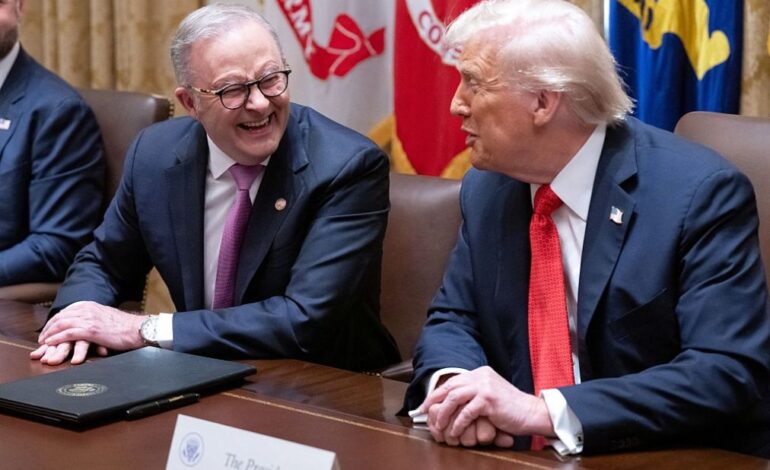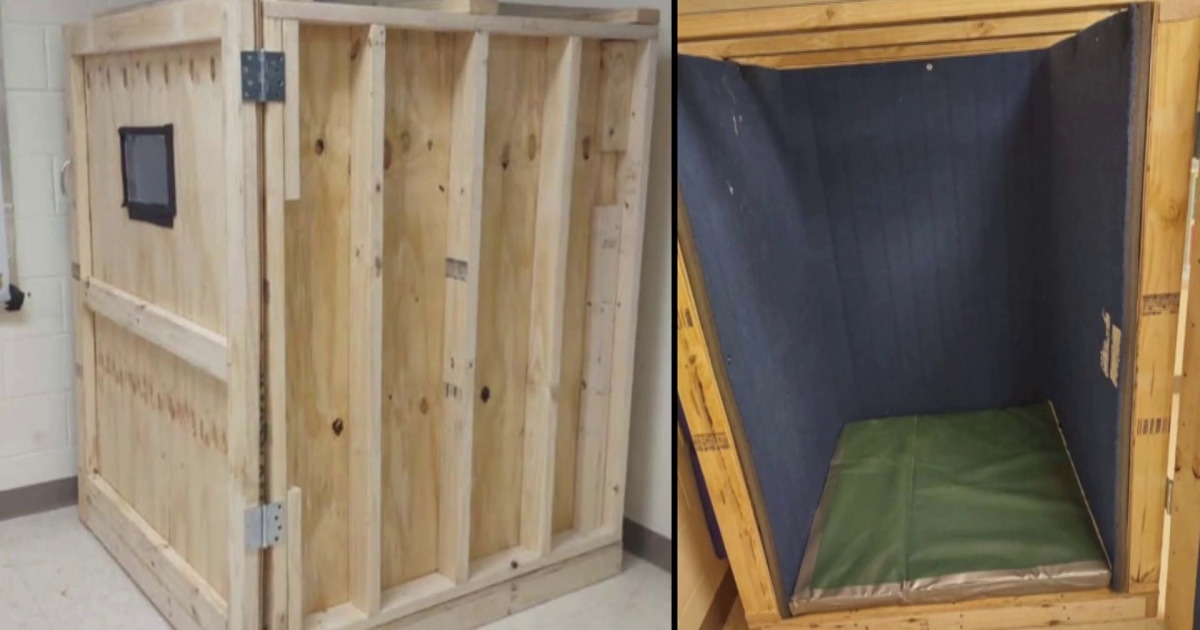Trump, Albanese Announce Urgent Minerals Deal to Counter China

UPDATE: In a landmark meeting at the White House on October 30, 2023, U.S. President Donald Trump and Australian Prime Minister Anthony Albanese announced a crucial agreement aimed at securing a steady supply of rare earth minerals, a strategic move to counter China’s growing influence in the Pacific.
This urgent deal comes as both leaders seek to bolster military and technological cooperation between the two nations. Trump has vowed to accelerate production of nuclear-powered submarines, reaffirming commitments made during the Biden administration, which is critical as tensions rise with Beijing.
During their meeting, Trump and Albanese signed a framework that outlines a collaborative effort to enhance access to Australia’s rare minerals, essential for modern technologies including computer chips and batteries. The deal includes a significant investment of $3 billion over the next six months, with plans to streamline permits for mining and processing operations.
Albanese emphasized the importance of this agreement, stating it would elevate the bilateral relationship to “that next level.” Trump echoed this sentiment, confidently predicting that within a year, the U.S. will have an abundance of these critical minerals. “They’ll be worth about two dollars,” he joked, highlighting the deal’s potential economic impact.
The framework also includes a promise from the U.S. Export-Import Bank to provide $2.2 billion in financing to enhance supply chain security. The Pentagon plans to invest in a gallium refinery in Western Australia, vital for advanced military technologies like missile defense systems.
Concerns over China’s dominance in the supply of these critical minerals loom large over the deal. As Trump prepares for a high-stakes meeting with Chinese President Xi Jinping at the Asia-Pacific Economic Cooperation summit next month, he has threatened to raise tariffs on Chinese goods up to 157% if Beijing fails to meet U.S. economic demands.
The urgency of the situation was underscored by comments from Secretary of the Navy John Phelan, who noted the need for clarity in the AUKUS agreement, which focuses on U.S. military strength in the Indo-Pacific. “Improving this agreement is essential for our ability to project power in the region,” he stated.
Tensions flared during the meeting when a reporter brought up criticisms from Australia’s Ambassador to the U.S., former Prime Minister Kevin Rudd, regarding Trump’s leadership. Trump’s sharp response reflected the complexities in U.S.-Australia relations despite the current cooperation.
As both nations finalize this minerals deal, the implications for global supply chains and military readiness in the Pacific are profound. The urgency of these developments signals a significant shift in geopolitical dynamics, making it critical for allies to secure their interests against a backdrop of increasing competition with China.
Next Steps: Watch for further details on the implementation of this agreement, as both nations aim to establish a more resilient supply chain for critical minerals. Keep an eye on upcoming discussions at the APEC summit, which may further shape the economic landscape in the Asia-Pacific region.
This agreement not only highlights the strategic importance of rare earth minerals but also sets the stage for a more robust alliance between the U.S. and Australia in the face of global challenges.






